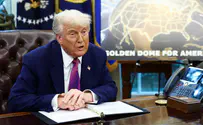Nuclear watchdog:
Iran grew near-weapons Uranium before Israeli strikes
IAEA reports Iran expanded 60% enriched uranium stockpile ahead of Israeli strikes, raising serious concerns over inspections and verification access.

IAEA reports Iran expanded 60% enriched uranium stockpile ahead of Israeli strikes, raising serious concerns over inspections and verification access.
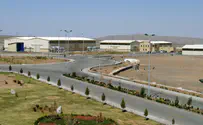
Iran says nuclear talks with the US remain possible, but missile restrictions demanded by Washington are obstructing progress, warns such conditions “negate any talks.”
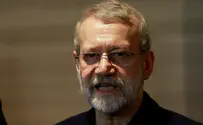
China and Russia back Iran in rejecting a European bid to reimpose UN sanctions, calling the snapback move “legally flawed” amid failed nuclear talks and rising tensions over uranium enrichment.
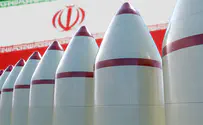
Putin will meet Iran’s President in China following the E3’s announcement that it will reimpose sanctions on Iran over nuclear non-compliance.
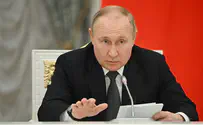
Iran’s Foreign Minister says Iran is ready to resume fair nuclear talks after the E3 moved to reimpose UN sanctions over alleged violations of the 2015 nuclear deal.
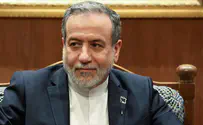
European powers trigger snapback mechanism ahead of October deadline, citing Iran's noncompliance with 2015 nuclear deal following US and Israeli airstrikes.
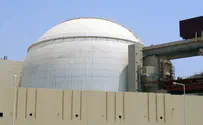
Iran is swiftly clearing a bombed nuclear site in Tehran, likely to erase evidence of weapons work, as satellite images show major demolition.
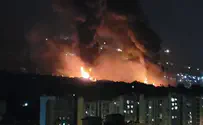
Iranian Crown Prince Reza Pahlavi calls on the UK, France, and Germany to reinstate snapback sanctions, warning that Iran’s regime is exploiting talks to advance its nuclear goals and evade international oversight.
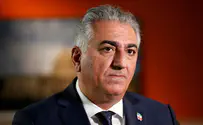
As Iran and E3 representatives meet ahead of deadline for reinstating sanctions, a source tells Axios the Iranians "haven't put tangible detailed deliverables on the table."

Nuclear talks between Iran and Europe to resume on Tuesday, as the Europeans threaten sanctions over Iran’s uranium enrichment program.
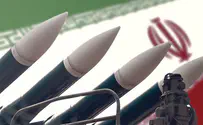
Iran’s Supreme Leader declares Iran’s standoff with the US “unsolvable,” vowing defiance amid nuclear tensions and warning Tehran would never submit to American or Western pressure.
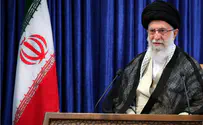
According to an Axios report, a phone call between the Foreign Ministers of Britain, France, and Germany and their Iranian counterpart, Abbas Araghchi, failed to make any progress on the nuclear issue.

Iranian Foreign Minister Abbas Araghchi says the time for "effective" nuclear talks with the US has not yet arrived, following a pause in negotiations after Israeli and US strikes on Iran’s nuclear facilities.

Iran says it will continue nuclear talks with the IAEA despite a recent Israeli-American bombing campaign that destroyed key sites.
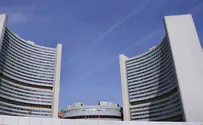
Iranian MP Abolfazl Zohrevand claims upgraded missiles can strike the US and cause nuclear-level damage, warns of an inevitable war unless Iran achieves full power and the US abandons global dominance.
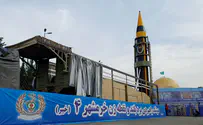
Iran says it's working with Russia and China to block European efforts to reimpose sanctions tied to the 2015 nuclear deal.

Iran’s vice president says Tehran could hold direct nuclear talks with the US if conditions are equal. Tehran has so far rejected Washington’s demand to halt uranium enrichment.
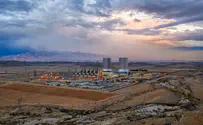
France, Germany and the UK warn they will trigger UN sanctions if Iran fails to resume nuclear talks before the end of August.

The IAEA's deputy head will visit Iran Monday to ease tensions, but no inspections will occur. Iran's Foreign Minister Araghchi reiterates that cooperation is contingent on new terms.
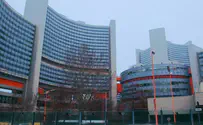
President Trump threatens Iran with a swift response if they restart their nuclear program, following US strikes on Iran’s nuclear facilities in June.
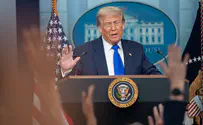
Iran's Foreign Minister says Tehran won't resume nuclear talks unless the US compensates for damages from recent strikes. Demands include financial reparations and guarantees against future attacks.

President Trump says Iran’s nuclear program was “decimated” and lauds US pilots’ B-2 missions. On Gaza, he calls the situation “terrible,” noting $60 million in US aid hasn’t reached the people, blaming Hamas for diverting food and funds.
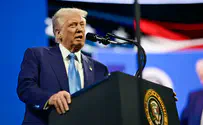
Satellite images show Iran has reopened a blocked tunnel at its Isfahan nuclear complex, with signs of new construction at Fordow. Expert David Albright warns the regime may be preparing to quickly restore key underground nuclear capabilities.
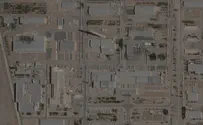
Iran says it will continue nuclear talks with European powers after "serious, frank, and detailed" discussions in Istanbul, the first since last month's bombings of Iran’s nuclear sites.

Iranian Deputy Foreign Minister Kazem Gharibabadi threatens that Iran will leave the Non-Proliferation Treaty ahead of meeting with EU countries which have warned of the reimposition of snapback sanctions.

Iranian lawmaker warns that the Islamic Republic could end regional security cooperation if European states trigger the UN snapback mechanism to reimpose sanctions.

President Trump calls on CNN to apologize after Iran’s foreign minister admitted US airstrikes caused “very severe” damage to its nuclear sites - contradicting CNN’s report that strikes had minimal impact.
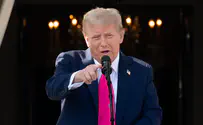
Iran’s Foreign Minister says his country refuses to abandon uranium enrichment, calling it a matter of "national pride."

Iran says it will hold nuclear talks with Britain, France, and Germany in Istanbul on Friday, amid rising tensions following US and Israeli strikes on Iranian nuclear sites.

France, Britain, and Germany issue a stern warning to Iran, demanding immediate resumption of nuclear diplomacy and threatening to reinstate UN sanctions by summer's end if "concrete progress" towards a nuclear deal isn't made.

US President Trump states he is "in no rush" to talk to Iran, despite their desire for discussions.

The EU is moving to reinstate UN sanctions on Iran with an August 29 deadline for nuclear progress. This action could trigger a full "snapback" of sanctions by October 15.
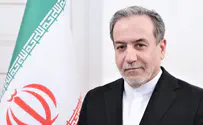
Iran delays nuclear talks with the US following Israeli and US strikes on its nuclear facilities. Foreign Ministry spokesman says "no specific date, time or location has been determined" for a meeting.

Israeli official says that the deeply buried enriched uranium at an Iranian nuclear facility may be retrievable, complicating assessments of US strike damage.
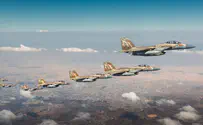
Netanyahu's office says the PM and Defense Secretary Hegseth discussed countering the Iranian threat, fostering regional security cooperation, and bolstering the strategic relationship between Israel and the US.
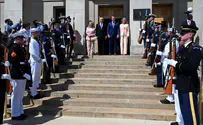
Iran's Foreign Ministry spokesperson firmly denies a US claim of a meeting request, contradicting President Trump's assertion of scheduled talks.

British Foreign Secretary David Lammy warns Iran of "dramatic sanctions" if it doesn't clarify its nuclear program and allow UN inspectors.
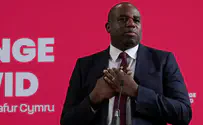
France's foreign intelligence chief, Nicolas Lerner, confirms US and Israeli strikes "very, very delayed" Iran's nuclear program by "various months," seriously affecting every stage from enrichment to warhead design.

The Iranian Nuclear Program in regional and global perspective.
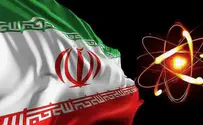
President Trump anticipates a "good chance" of a deal with Hamas this week to release remaining hostages. He also plans to discuss a "permanent deal" with Iran with PM Netanyahu.

Departure follows Tehran's suspension of cooperation with UN atomic agency and rising threats against IAEA leadership.
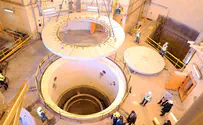
If confirmed, the Oslo meeting would mark the first direct US-Iranian nuclear talks since joint American-Israeli strikes targeted key Iranian nuclear sites.
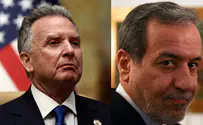
Iran officially suspends cooperation with the UN nuclear watchdog, a move the US calls "unacceptable." This follows a 12-day conflict with Israel and US strikes on Iranian nuclear facilities.
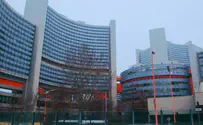
The US believes its recent airstrikes significantly set back Iran's nuclear program by up to two years, Pentagon spokesman says, adding key nuclear sites in Fordow, Natanz, and Isfahan were “completely obliterated.”

Tehran accuses Washington and Jerusalem of violating its sovereignty and killing civilians during 12 days of war.

Prime Minister Netanyahu is expected to ask President Trump for a formal US guarantee of approval for Israeli strikes on Iran if the Islamic Republic resumes its nuclear or missile programs.
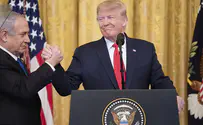
EU foreign policy chief Kaja Kallas urges Iran to immediately restart nuclear negotiations with the IAEA, warning against NPT withdrawal.
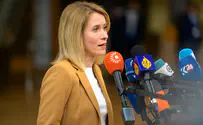
Making a deal means trusting Iran, and trusting a crazy state to adhere to any agreement is itself a kind of craziness. The only thing to do is stimulate a revolt. Opinion.

Iranian FM Araghchi downplays immediate US nuclear talks, insists Iran needs security assurances and time.
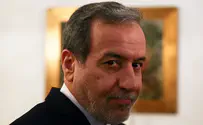
Iran's deputy foreign minister Majid Takht-Ravanchi states the US must end all strikes for diplomatic talks to resume: "We do not want war. We want to engage in dialogue."

Iran's UN envoy, Amir-Saeid Iravani, declares that Iran's nuclear enrichment "will never stop," calling it an "inalienable right." He affirms Tehran's readiness for talks but rejects "unconditional surrender".

Operation Rising Lion aimed to halt Iran's alarming progress toward nuclear weapons. Key scientists were eliminated simultaneously in their homes, striking at the heart of the development effort.
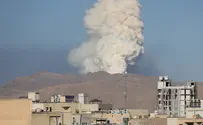
Watch: In segment translated by MEMRI, Iranian TV host Amir-Hossein Tahmasebi announces Iran's new "nuclear ambiguity" policy, states Iran will enrich uranium as it chooses, retain all material, trade freely, and build facilities anywhere.

New York Times reports that Israeli and American strikes on Isfahan have severely crippled Iran's ability to produce atomic bombs by destroying crucial metallization facilities. This process, essential for creating the explosive core of a nuclear weapon, is now a major bottleneck for Tehran's nuclear ambitions.
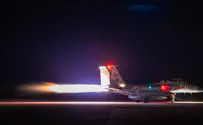
UN nuclear watchdog chief Rafael Grossi reveals that Iran could resume enriched uranium production "in a matter of months," despite extensive damage from recent US and Israeli strikes.
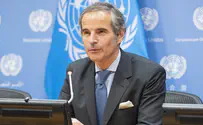
Iranian Foreign Minister Araghchi blasts Trump for disrespecting Supreme Leader Khamenei, demanding a change in tone for any nuclear deal. This follows Trump's earlier post criticizing Khamenei and revealing he halted sanctions relief.
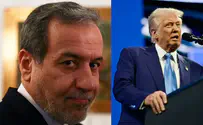
New satellite images from Maxar Technologies reveal Iran has initiated repair efforts at its Fordow nuclear facility, targeted last week by US airstrikes. Excavators and bulldozers are visible near bomb craters, suggesting immediate attempts to restore access and assess damage.
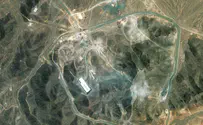
Following "Operation Rising Lion," Israel's IDF Chief of Staff Eyal Zamir declares Iran is no longer a nuclear threshold state. Extensive damage to Iran's nuclear infrastructure and scientists will take years to repair.

Following US and Israeli strikes on its nuclear facilities, Iran announces it has ceased cooperation with the UN nuclear watchdog. Iran's Foreign Minister cites the IAEA's failure to condemn the attacks and its "regrettable role" in past issues as reasons.

President Trump declares he'd "absolutely" consider bombing Iranian nuclear sites again if intelligence dictated, but adds he believes Iran is "exhausted" and not focused on nuclear pursuits.
